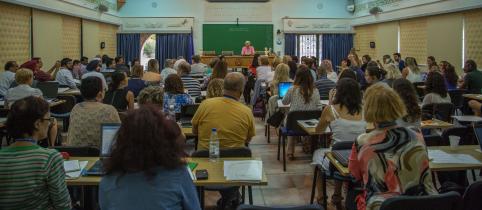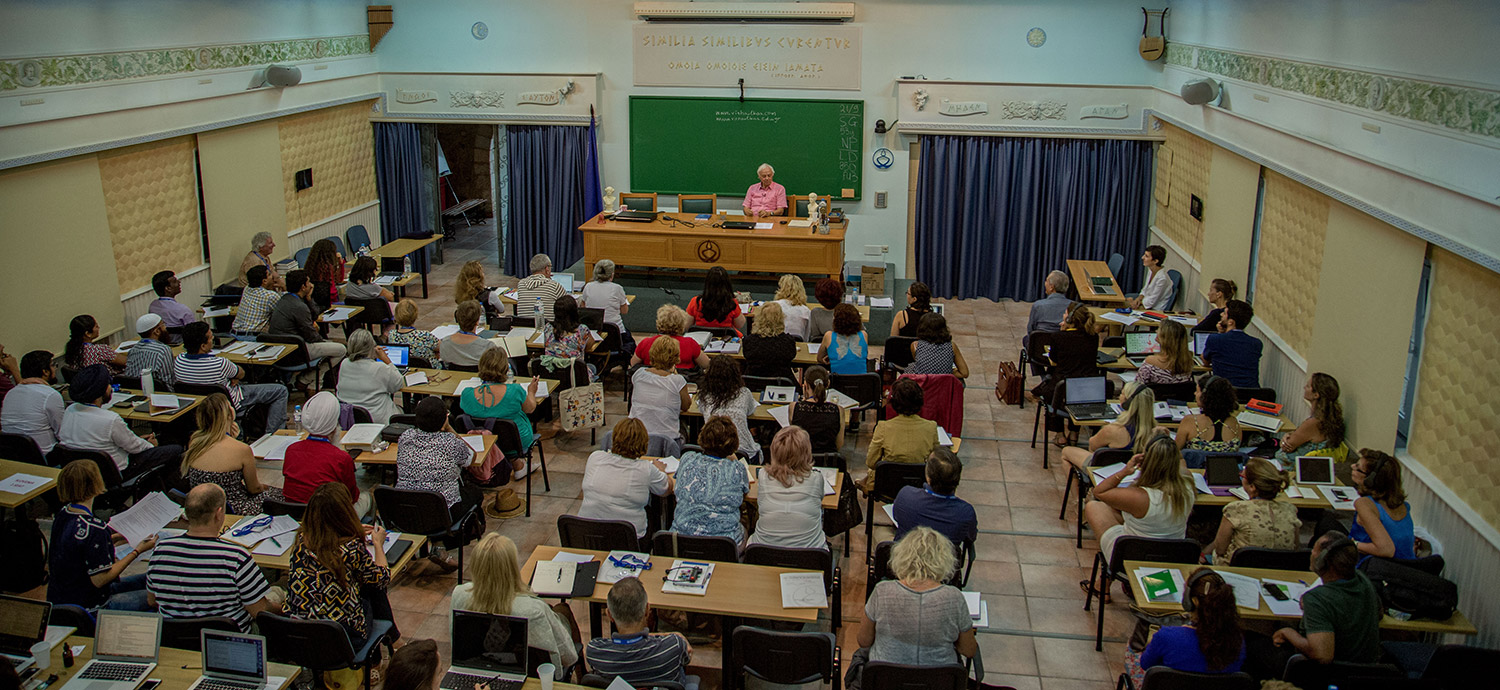This proposal is merely a suggestion, and would require detailed special studies for each member state of the European Union or any other country, but it could form the initial basis for discussion on the thorny and problematic topic of health care and pensions today.
A Revolutionary Proposal for National Health Policies
[ Excerpt from Medicine of New Millennium – Appendix II ]
This proposal is merely a suggestion, and would require detailed special studies for each member state of the European Union or any other country, but it could form the initial basis for discussion on the thorny and problematic topic of health care and pensions today.
This proposal is aimed at :
- Putting an end to the present reckless waste of funds prevalent in health care management.
- Ending the unacceptable level of allowances to medical services with their attendant squandering of funds.
- Improving patient allocations, as well as the state of health of the general population
- Increasing pension allowances, without however raising the cost of health contributions.
RECOMMENDATIONS FOR HEALTH Policies:
I therefore propose at this stage:
1. That all systems of therapeutics be provided with equal rights in terms of application and practice.
2. The patients have access to information concerning health care and free choice. The State should permit all systems of therapeutics to be practised freely, and these should be provided with equal opportunities for research. The limits and possibilities of alternative forms of treatment should be determined with objectivity through adequate tests, thus bringing an end to such popular beliefs that these forms of treatment work only for minor psychosomatic ills, or indeed that they are the ultimate panacea.
3. To create alternative treatment units in all hospitals in order to ensure that all patients should have access to them.
In order for these aims to be achieved, however, it will be necessary to develop a radically different policy with regard to the National Health Service in different countries.
We all know that, in many European countries, the government health services are spending astronomical sums of money. These sums are literally wasted in bureaucratic, chaotic and quite ineffective policies of health care (See Greece for example).
Indifference, fraud and a lack of control measures have brought the state treasury and national health services to the brink of the abyss. Meanwhile, the medical establishments have grown in strength, mainly thanks to the secrecy that surrounds their weaknesses, with the result that none but the doctor, who “knows”, is considered worthy to practise, while all the others are fools. The patient regards his doctor with awe, in the belief that his life is in his hands.
This relationship – that of the seemingly omniscient doctor, who speaks but little though he knows much – and the ignorant patient who must not either speak or think, has been cultivated to an extreme degree by the medical establishment. Wearing white coats and assuming an air of great wisdom, they have often mercilessly exploited the government, mainly by sending patients for exams and tests – on the whole quite uselessly – to certain diagnostic laboratories, for reasons best known to themselves. Also the prescription of the most expensive drugs, and other similar tricks, are the usual practice in some of the European countries.
For all these reasons I recommend that 85% of the total sum which is available today for health treatment and pensions should be put into special personal accounts for each policy holder both by employers and employees.
In such a way the policy-holder, by spending his own money out of his own account – would be able to consult the doctor of his choice, and pay him according to a private agreement arrived at between the two.
These sums would only be available to the policy-holder in the form of a special red cheque-book which would only be valid for his own health care needs, whether for doctors, hospitals or alternative therapies.
No cheque should be valid for anything other than organisations or people involved in health-care. For that matter, the special colour of these cheques would indicate that nobody may use them for payment for anything other than doctors and health services, and nobody else should have the right to be in receipt of such a cheque (the cheques would also be non-transferable). This system will also automatically bring an end to the impressive amount of tax-evasion carried out by doctors at present, since all doctors would receive payment in the form of these special cheques.
These accounts could have the highest rate of interest, and 50% of the amount accumulated as the policy-holder reaches age 55 or 65 – according to the nature of his or her job – could be made freely available, as a “lump sum”, to the policy-holder, to use as he or she sees fit, while the remaining 50% would determine the level of his or her pension with such co-efficients as to ensure that the whole amount would be credited to the policy-holder on reaching 75 years of age. Beyond this age, the bank or company which will be managing the accounts of the persons, should continue to provide the policy holder with his or her pension, increasing the last pension payment in line with inflation. If on the other hand, the policy-holder should die before reaching the age of 75, the remaining sum would be credited to the bank or company.
We may well ask why the state could manage our money better than we ourselves.
A specific percentage of money would be added to the price of goods produced by farmers and stock-breeders, and which would be directly transferred into these special accounts.
Out of the remaining 15%, 5% should be placed in the hands of a central organisation (e.g. the National Health Service of the country) whose sole aim would be to keep the workings of the system in check. Naturally, the great majority of National Health Service employees would no longer be needed, and would be available for more creative employment. The National Health surgeries and their equipment could be made over to private doctors, or to “doctors’ cooperatives” to provide cheap medical care of the kind already on offer under the present system. As a matter of fact a great part of the services needed by patients today could easily be covered by such doctors.
The quality of medical care presently available from the National Health Service of each country should thus be cheaply available on the free market, and patients would have no difficulty paying for them out of these special accounts. At the same time they would be able to afford far better medical services, when a real need for them arose, and without superfluous expenditure.
In the present situation, the greatest waste of funds involves drugs and tests that are not really needed. Some education for the people that it is not necessary, in most cases, to take drugs continuously would be needed.
The important differences between this new system and that which is already in place are the following:
1. The State would no longer need to finance the deficit, which is predicted to reach astronomical proportions once most of the citizens of Europe fall sick with a chronic disorder due to over-consumption of drugs and their side-effects, and once the survivors begin to demand pension rights from a very early age because of this.
2. It will no longer be necessary to resort to extreme taxation of the population in order to cover the huge and ever increasing amount needed for health expenditure, which is soon to reach dizzying proportions.
Finally, the remaining 10% should be transferred into a special account for people who are handicapped, chronically ill or unable to undertake any form of work whatsoever. Such persons would use this account only if their own personal account were to run out, should they have had one in the first place.
In this way policy-holders on the one hand would be able to save money and restrict wasteful spending on drugs, tests, etc., in order to have better pension prospects in the end, while on the other hand they should be able to look after their health properly, or at least as they think best. I predict that this will be either:
a. With mild forms of medical treatment, such as Homeopathy, Acupuncture, osteopathy, Chiropractic or Naturopathy, and in general with traditional medicine,
b. with their own choice of doctor, who seems best to them, and who produces the best results.
I predict that, on the basis of the economy shown by the average citizen when managing his own money, under this system patients will take far fewer drugs in order to use the sum for retirement. And, as a result of taking less drugs, they will remain in a better state of health.
With this system, of course, policy holders would be entitled to invest the sum equivalent to their pension rights whenever they wished, so long as twenty years of insured working life had been completed.
It should also be possible for the policy holder to receive the interest from the amount invested, while being employed in another job for fewer hours, and with lower wages and a smaller contribution, naturally.
In case of sudden death before pension age, 50% of the collected insurance fees would automatically pass to similar special accounts held by the heirs, while the remaining 50% would be transferred to the bank or insurance company to cover the pension rights of those living beyond the age of 75. In cases where there should be no direct heirs (children) the money would be transferred to the special account for handicapped people. All legacies for whom no heirs could be found, and whose use was not determined by the legator, could also be transferred to this account.
The following results may be expected from this system :
1. A general improvement of medical services, due to the competition which would be generated not only between doctors but also between medical systems in general, as well as in the quality of drugs and services provided by National Health Hospitals.
2. A tremendous decrease in spending on health care, as the policy holder would think twice before “throwing his money away” on irrelevant and superfluous tests, drugs, etc. as is the case today.
I estimate that total health costs could decrease by a third from what they are today. Doctors would “do anything” to serve patients, in order to establish a clientele, and pharmaceutical companies would turn to ‘more profitable investments’ in order to find another gold-mine elsewhere.
3. Relief for the State and National Health Service, which cured of their “growing cancerous health policies”, would reflect on those citizens who pay taxes because they insist on working hard right into their old age.
4. With the passing of generations, as may easily be conceived, the balance contained in these personal accounts would continue to grow, thanks to the rules applied to inheritance, and some day there should be an excess of resources for all policy holders. In other words, since the original amounts deposited into these accounts would not be greater than that which is expended today, and since these amounts would not be diminished on useless paper-work and red tape, there would be more than enough to cover health needs and a respectable pension.
5. It is quite possible, if all this is put into practice, that in the generations immediately following ours, a significant decrease in retirement age could be put into force, without burdening the state or contributors.
Government servants could make the arithmetical calculations for their own countries. I have done them for Greece, and it works.



